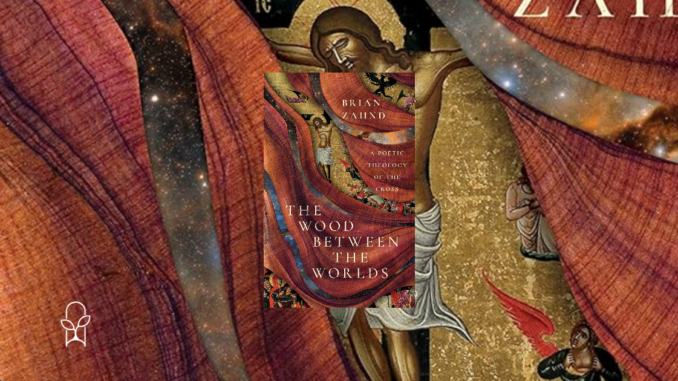
Also by this author: When Everything's on Fire: Faith Forged from the Ashes, The Wood Between the Worlds: A Poetic Theology of the Cross
Published by IVP on February 26, 2024
Genres: Non-Fiction, Christian Life, Theology, Social Justice
Buy on Amazon
Goodreads

The cross is the heart of Scripture.
Everything about the gospel message leads to the cross, and proceeds from the cross. In fact, within the narrative of Scripture, the crucifixion of Jesus is literally the crux of the story―the axis upon which the biblical story turns. But it would be a mistake to think we could sum up the significance of the crucifixion in a tidy sentence or two. That kind of thinking only insulates us from the magnificence of what God has done. In our ongoing quest to make meaning of the cross, we need to recognize that this conversation will never conclude―that there is always something more to be said.
Brian Zahnd reminds us that the meaning of the cross is multifaceted and should touch every aspect of our lives. Just as gazing through the eyepiece of a kaleidoscope reveals a new geometric image with every turn, Zahnd helps us see that there are infinite ways to behold the cross of Christ as the beautiful form that saves the world. The Wood Between the Worlds is an invitation to encounter the cross of Christ anew.
Brian Zahnd explores the crucifixion of Christ in a multifaceted way in this book, with each chapter focusing on a different aspect of the cross. Zahnd writes about theological topics related to what Jesus accomplished on the cross, and he reflects on social and political meanings and implications of the crucifixion. The chapters are typically around ten pages long, and they read like brief essays. Although some of Zahnd’s arguments build throughout the book, the chapters are typically self-contained, each reflecting on a different facet of the cross. His writing is beautiful and thought-provoking, and he addresses many important themes about Jesus’s experiences, how Jesus viewed the cross, and what the cross means for us today.
Zahnd encourages his readers to sit with the all-encompassing mystery of the cross instead of trying to package it into tidy theological formulas, and I appreciate the depth and vision of his approach, but he frequently caricatures other people’s positions. He spends a great deal of the book dunking on atonement theology in its most extreme, poorly thought out, and unbiblical forms, and he does not engage with anything resembling the atonement theory that I believe in. He also doesn’t really engage with Scriptures that support atonement theory. I found this distracting and off-putting throughout the book, especially since Zahnd does not adequately explain and defend his different view.
Because of Zahnd’s priority on embracing mystery and complexity here, he doesn’t want to spend time explaining his theology in a detailed manner. I understand why, but in practice, this means that he frequently rejects others’ doctrinal beliefs without explaining his own in a satisfactory way. He also makes dogmatic claims and then moves on without backing them up with evidence and argumentation. For example, he shares very loose, undefined thoughts about universalism without presenting an argument for it. He also frequently cherry-picks Scripture to support other points.
Also, although I appreciated many of Zahnd’s prophetic critiques of American evangelicalism, some of these criticisms majorly lack nuance. For example, there were multiple times where he would lament that American Christianity ignores some particular element of the cross, and I would be like, “What? I’ve heard this preached all my life, and I’ve read this in dozens of books, all within average American evangelical contexts.” Zahnd’s social applications do challenge the status quo, but many chapters that focus on the cross itself claim to be breaking new ground while resembling every Easter devotional I’ve ever read, just dressed up in fancier and more metaphorical language. Many of Zahnd’s sweeping generalizations about other Christians are unfair and convey a false sense of superiority, even if that is unintentional.
The Wood Between the Worlds: A Poetic Theology of the Cross is unique and powerful, but I would primarily recommend it to Zahnd’s existing fans and followers. They will have the greatest appreciation for his style and approach, and even though people from less theologically progressive circles can benefit from this book’s thoughtful insights, they need to be prepared for Zahnd to frequently speak of them and their beliefs dismissively, often while misrepresenting their actual theology. Even though Zahnd tries to make this book ecumenical and shares a number of worthwhile, spiritually deep insights, this book is best for people who already align with his views.
